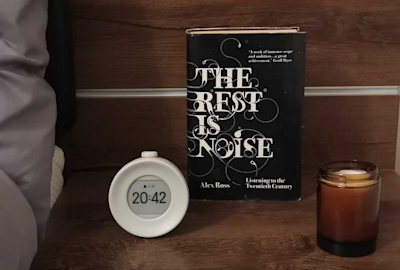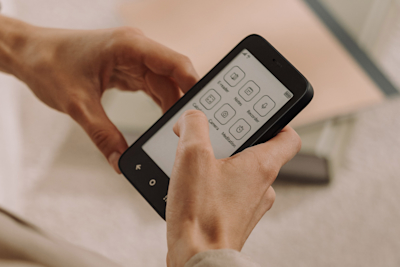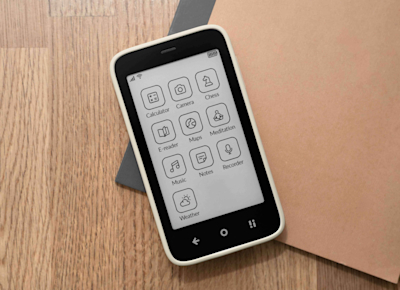
5 Simple Sleep Hacks to Adjust to the End of DST in the Fall
Do you get an extra hour of sleep in the fall?
The days are getting shorter, the nights longer, and that only means one thing: Daylight Saving Time (DST) is ending. As we shift our clocks back and gain an extra hour of sleep, many of us still struggle to adjust. The disruption to our circadian rhythm can often lead to sleep disruptions and even insomnia. According to the [1], many people are confused about DST, and some studies show sleep may be disrupted during this time.
But fear not, at Mudita, we have compiled a list of sleep hacks to help you transition smoothly into the DST change.
Let's delve into these sleep tips which promise better sleep and improved sleep quality.
Cut the Caffeine After Noon for Better Sleep
The warm embrace of your midday coffee might feel like the perfect pick-me-up, but did you know it could be the culprit behind your fragmented sleep pattern? Caffeine increases sleep fragmentation, leading to lighter sleep phases or even causing you to wake up midway through your sleep cycles. As we transition to and from Daylight Saving, it's more important than ever to prioritize sleep quality. Limiting your caffeine intake post-noon is a smart move, ensuring a more consolidated and deep sleep.[2][3]
Prioritize Real Darkness: No Screens After Dinner
In this digital age, our evenings are often illuminated by the blue light of screens, from smartphones to TVs. This blue light, however, poses a significant threat to our sleep schedule. It curbs the evening-time production of melatonin, our sleep hormone, essentially tricking our brain into thinking it’s still daytime. This pushes our brain's sleep/wake switch into a persistent "awake mode," causing potential sleep disruption. Our tip? Power down those screens post-dinner, and allow your body to align with its natural circadian rhythm.
READ: Screen Time & Sleep: How Digital Devices Affect Sleep
Evening Meditation: The Wind-Down Routine Your Brain Craves
The stress and busyness of daily life can often put our nervous system in a heightened “fight or flight” mode. To combat this and promote better sleep, consider integrating a 30-minute evening meditation session into your routine. This mindful practice can act as a gentle switch, calming your nervous system and preparing your body for a night of rest. It's a peaceful bridge from the challenges of the day to the serenity of nighttime. Did you know that our line of Mudita Harmony mindful alarm clocks features a Meditation Timer, so you can reset and recenter whenever you feel the need to. With meditation, you can get the space and clarity you need to relax, calm down and organize your thoughts in order to fall asleep more easily and wake up rested and refreshed.
Mudita Harmony is a perfect companion for yoga or meditation practice
READ: The Science of Meditation & Mindfulness
The Power of Consistency: Keep a Steady Sleep Schedule
We say this all the time: Consistency is key, especially when it comes to sleep. Going to bed at the same time daily can do wonders for regulating your sleep pattern. As you establish this routine, your body adapts. Before long, you'll find yourself naturally getting drowsy when bedtime approaches. Embracing this consistency is especially vital during the DST transition, ensuring that your body stays in tune with its natural rhythms.
Opt for Herbal Over Alcohol: A Tranquil Nightcap
A glass of wine might seem tempting, especially as a wind-down after a long day. However, in the week leading up to the DST shift, it's wise to swap out that alcohol for a soothing cup of herbal tea. Ingredients such as passionflower, catnip, hops, oat flower, valerian, or lemon balm can ease your brain into rest mode. They help counteract the heightened “fight or flight” response that the DST transition can instigate. Alcohol might give the illusion of drowsiness, but it fragments your sleep and hinders the deep sleep stages we need to feel truly rested.[4]
Prioritize Your Sleep Hygiene: Navigate the DST Transition with Mudita
Quality sleep is not a luxury; it's a necessity. The importance of sleep goes beyond mere rest. It's a pillar of our health, affecting everything from our cognitive functions to our emotional well-being. As the Daylight Saving transition approaches, it's crucial to recognize any signs of sleep disruption or insomnia and ensure our sleep sanctuary supports our circadian rhythm adjustments. Eliminating disruptions is key, and the start of this journey is leaving behind the smartphone alarms with their melatonin-suppressing blue light and the continuous barrage of notifications.
This is where Mudita Bell and Mudita Harmony come into play. Mudita Bell, designed with minimalist principles, brings a touch of offline tranquility to your bedside. Its light-enhanced alarm and harmonious tones ensure your wake-up moments post-DST are serene and invigorating.
On the other hand, Mudita Harmony is a steadfast companion for those nights when sleep seems elusive due to the DST transition. Its silent demeanor and meditation timer, coupled with a relaxation sound library, help establish and maintain healthy bedtime habits, allowing you to awaken to handpicked sounds, devoid of the jarring distractions typical of today's digital age.
Armed with these sleep tips, you can ensure that you navigate the DST shift with ease, promoting a sleep pattern that rejuvenates and refreshes.
Remember, sleep is self-care, and it's imperative to take steps to improve our sleep hygiene for our holistic well-being. Sleep well and embrace the changing times with confidence!
Related stories

Mudita’s Community-Curated Wintertime Reading List
Slow down this winter with our community-curated reading list from the Mudita Forum Community, featuring books on well-being, focus, simplicity & mindful tech.

How Mudita Kompakt Apps Help Reduce Screen Time
Explore how Mudita Kompakt apps reduce screen time through intentional design, offline tools, and distraction-free functionality.

How Mudita Kompakt Apps Support a Mindful and Intentional Life
Mudita Kompakt offers mindful E ink apps designed for intentional living with offline navigation, eReader, meditation, music, and mor, without distractions.
If you'd like to receive the best stories from our blog, keep up to date with our progress and get notified about our product releases and special discounts.